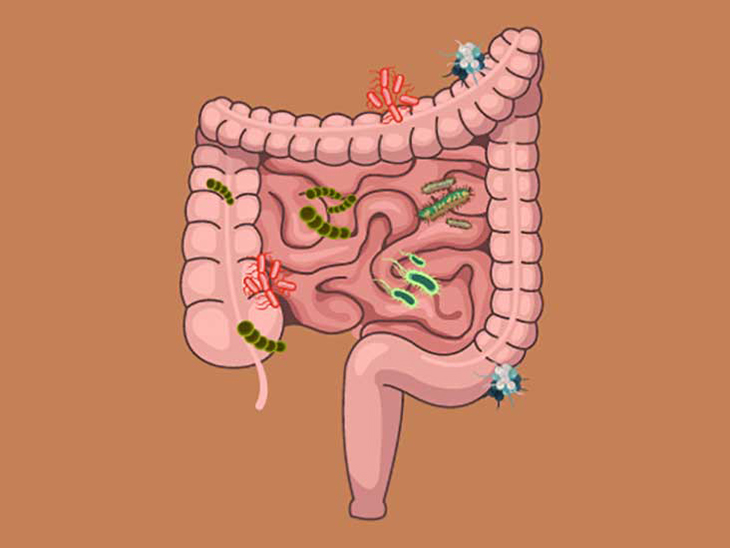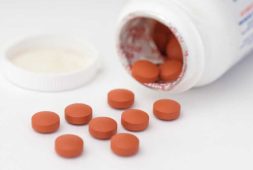
A study of was made and they focused on Hispanic women. The researchers found changes in the mix of gut bacteria that they found and this happened after menopause. They also studied the links and saw that these were linked to risk factors for heart disease and metabolic disorders. An example of the latter would be type 2 diabetes.
As scary as this may sound, the truth is that gut changes do happen after menopause and this increases the risk of heart disease, type 2 diabetes, or both.
When menopause happens, there will also be a decline in sex hormones. This changes the mix of gut bacteria in women and this happens more often to them than in men. A new study was made and the findings suggest that this stage in life could be linked to an increased risk of cardiometabolic diseases in some women.
Women who are in the post-menopausal stages are more at risk of cardiometabolic syndrome. This term refers to heart disease and metabolic disorders like type 2 diabetes. This happens because of the changes that tale place in their bodies also come with a lower sex hormone production. Previous research made suggests that as women go through menopause, they may go through the so-called cardiometabolic risk factors such as:
- Disruptions in sleep
- Elevated levels of cholesterol
- Weight gain
- Increased levels of blood sugar
- High blood pressure
There were also some studies that have managed to link menopause to changes that happen in the gut microbiome. This is where the collection of bacteria and other microorganisms live and this is found in the digestive system. Findings haven’t really been discussed because the studies performed only involved a few participants and the results they saw were varied.
So, this newest study looked at the connection from a different point of view. They studied data from blood and stool samples from a variety of participants. They looked at the differences in their gut microbiome. Included here are 295 women, 1,027 post-menopausal women, and 978 men.
They found that the post-menopausal women involved had less diversity in the types of microorganisms found in their gut. They compared this with premenopausal women and noticed the difference. This variety that was more decreased was more alike in men, according to the research article about the study. This was published in mSystems in April 2022.
“We think that because of decreases in estrogen and progesterone during menopause, the bacteria that normally metabolize these hormones become depleted, resulting in decreased diversity of the gut microbiome,” said lead study author Brandilyn Peters, PhD. He is an assistant professor of epidemiology at Albert Einstein College of Medicine in the Bronx, New York. He also regularly does research on the dietary and environmental determinants of the microbiome of people.
“The health effects of these changes are not yet clear, but reduced gut microbiome diversity is usually considered harmful for health,” Dr. Peters explained.
Lower Estrogen Count During Menopausal Transition Brings About Changes in Gut Bacteria
Compared with premenopausal women, those at the post-menopausal stage had lower levels of several types of organisms found in the gut. Among which as Escherichia coli and Shigella spp., Oscillibacter sp. strain KLE1745, Akkermansia muciniphila, Clostridium lactatifermentans, Parabacteroides johnsonii, and Veillonella seminalis. After menopause, women also had higher levels of Bacteroides sp. strain Ga6A1, Prevotella marshii, and Sutterella wadsworthensis.
Changes that take place in the gut microbiome during menopause were linked with worse cardiometabolic risk profiles. The study saw that this particularly increased levels of Sutterella wadsworthensis after menopause happened and these brought about higher blood pressure as per the analysis found.
The study also had its set of limitations, one of which is that they relied on women to report with accuracy. They wanted to know if they had gone through menopause and when this happened. This, of course, differed in length and intensity. The symptoms may or may not come with hot flashes. Hence, this can only be diagnosed in retrospect, which means that she should have missed her period for 12 months straight.
Another limitation is that all of the study participants were of Hispanic in nature. This could mean that the results for other races or other ethnic groups might be different. This was what the team noted.
“We know that the gut microbiome differs between populations of different cultural backgrounds, yet there can be similarities when it comes to the effects of an exposure, for example diet, or a disease on the gut microbiome across different populations,” Peters said. “We expect that some of our findings, but perhaps not all, may apply to other populations, and this is something that needs further study.”
The Link Between Gut Microbiome and Personal Health
The results made in the study, there is an increasing body of proof that hint how the gut microbiome plays a crucial role in overall health. Earlier research saw that this, in fact, has an impact on digestive health and other types of conditions like:
- Arthritis
- Obesity
- Depression
- Cardiovascular disease
“It is well established that human gut microbiota metabolically interacts with sex hormones,” stated Jiyoung Ahn, PhD. He is a professor of population health and associate director of the Perlmutter Cancer Center at the NYU Grossman School of Medicine in New York City.
The new study made saw the findings that “provide important evidence that menopause-related gut microbiome changes were associated with adverse cardiometabolic risk in post-menopausal women, indicating the gut microbiome contributes to changes in cardiometabolic health during menopause,” added Dr. Ahn. However, he wasn’t part of the study made.
It’s a fact that our daily diet plays a big role on out health and this can influence the makeup of our gut microbiome. Still, further research is needed to made in order for them to see whether there might be certain foods women should eat more or avoid completely in order to enhance a certain mix of organisms in the gut, especially the ones that take place after menopause. If they discover this, they may be able to attain cardiometabolic health. “It is premature to provide specific recommendations based on this study,” Ahn said.



